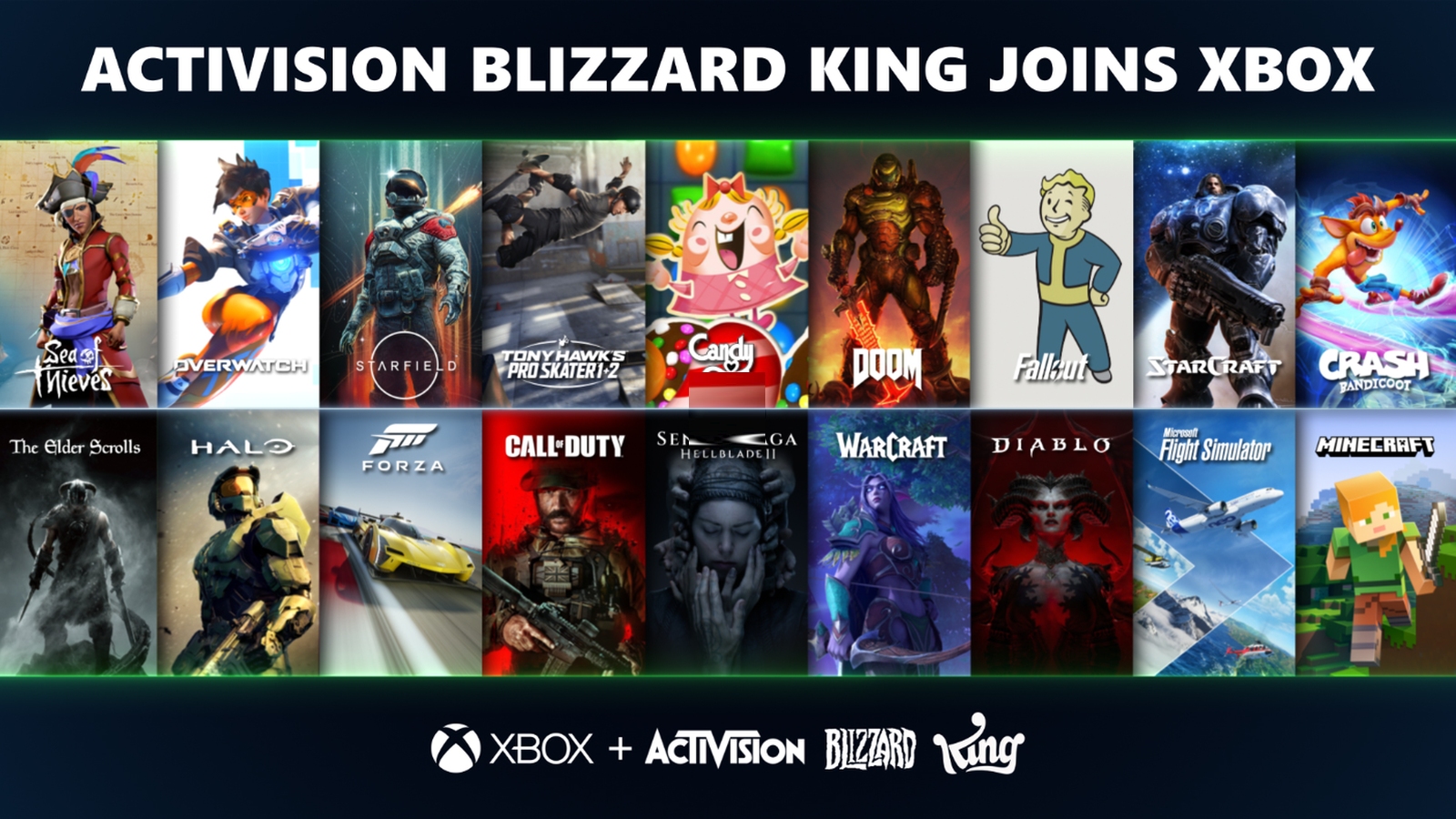A Microsoft announcedto acquire Activision Blizzard, one of the world's largest video game publishers and developers, for $68.7 billion. This is the largest ever acquisition in the games industry and significantly strengthens Microsoft's position in a competitive market.
Activision Blizzard has published popular games such as Call of Duty, World of Warcraft, Diablo, Overwatch, Candy Crush and StarCraft. These games have over 400 million monthly active users worldwide. With this move, Microsoft will not only acquire these games, but also the more than 10,000 employees of Activision Blizzard, who will continue to operate independently.

Microsoft aims to make these games available through its Xbox Game Pass subscription service, which offers more than 25 million users access to over 100 games for a monthly fee. Microsoft says this will increase choice and player experience, and help develop and innovate new games.
But the acquisition did not go smoothly. Microsoft had to overcome several hurdles before it could finalise the deal. One of the biggest challenges was posed by competition authorities, who were concerned that the acquisition would reduce competition and adversely affect consumers.
The US Federal Trade Commission (FTC) has opened an investigation into the case and has also filed a lawsuit against Microsoft to block the deal. According to the FTC, the acquisition would give Microsoft too large a market share and would exclude rivals such as Sony and Nintendo. The FTC also complained that Microsoft had already bought other game studios such as Bethesda and Mojang.
However, the lawsuit was not successful for the FTC. The court rejected the FTC's claim, saying there was insufficient evidence that the acquisition violated competition laws. The court said there was no evidence that Microsoft would monopolize or abuse its market power. The court also noted that the video games market is dynamic and changing, with many other players.
The other major obstacle was the UK Competition and Markets Authority (CMA), which was also investigating the case. The CMA feared that the acquisition would reduce choice and increase prices for cloud gaming services. According to the CMA, this would adversely affect UK players who are increasingly playing in the cloud.
However, Microsoft was able to reach an agreement with the CMA after it made a concession on the sale of Activision Blizzard's cloud gaming rights. Microsoft gave up exclusive ownership of these rights and sold them to Ubisoft, another major game publisher. This means that Activision Blizzard's games will not only be available on Microsoft's Xbox Cloud Gaming service, but also on other cloud platforms. The CMA has accepted this and approved the acquisition.
So Microsoft and Activision Blizzard now see no obstacles to closing the deal. The parties are expected to sign the contract and announce the finalisation of the transaction shortly. This move will strengthen Microsoft's position in the games industry and open up new opportunities for gamers.

